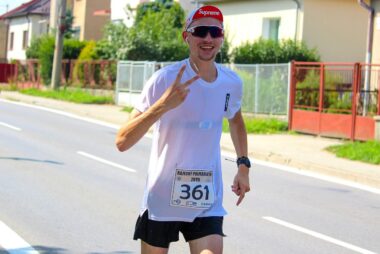Setting Realistic Goals in Youth Distance Running
Setting goals is crucial for athletes, particularly in youth distance running, where motivation can vary. When youths participate in distance running, achieving realistic and attainable goals ensures progression and boosts confidence. It is essential to establish clear objectives that allow young runners to push their limits appropriately, fostering a sense of achievement. Goals should consider the runner’s age, experience, and natural ability, ensuring they are tailored to individual needs. Meeting milestones consistently can enhance performance and maintain enthusiasm for the sport. Incorporating both short-term and long-term goals can help athletes focus on immediate improvements while striving for bigger achievements over time. Families and coaches should work together to align goals with runners’ aspirations. This collaboration supports open communication and encouragement, vital for a young runner’s development. Moreover, the emphasis should not solely be on winning races but also on personal improvements, such as obtaining a personal best time. Celebrating each milestone contributes to a rewarding experience that nurtures a lasting passion for running. Ultimately, the goal-setting process plays a significant role in the overall growth of youth distance runners.
Runners must remain active, engaged, and focused on their training, which directly impacts their goal achievement. Consistency in training is paramount for success, especially for youth athletes whose schedules may vary. Developing a structured training program helps ensure runners train effectively while allowing time for rest and recovery. It’s vital to include a mix of workouts, including interval training, long runs, and strength work, enhancing overall performance while promoting injury prevention. Young athletes should also be educated about maintaining proper nutrition and hydration, as they influence energy levels and performance. Schools and families can support youth distance runners in accessing the right resources to make informed decisions. Coaches play an instrumental role in guiding young athletes toward realistic expectations and fostering a positive environment emphasizing effort and improvement over mere results. Furthermore, setting specific goals is beneficial; these could focus on enhancing pace, adjusting race strategies, or improving endurance over time. Children and teens are more likely to stay committed to running programs and pursue their objectives earnestly when they find joy in the training process. Thus, a supportive atmosphere and structured approach contribute significantly to their success.
Understanding Individual Goals
Every young athlete has individual goals that differ from their peers, reflecting their interests and personal aspirations. Understanding these unique ambitions leads to more tailored support and guidance. Coaches and parents must encourage open discussions about what the athlete wants to achieve, fostering an environment where their voice matters. This process allows young runners to feel empowered and responsible for their journey. Being involved in the goal-setting process can aid their commitment to the sport while cultivating ownership over their progress. These discussions may explore areas such as time objectives for specific races, improving distance stamina, or developing skill levels in various running techniques. Talks about the desires and concerns of young runners allow coaches to provide a better-comprehensive support plan that reflects their interest in the sport. It also helps discern if young runners are motivated by competition or personal satisfaction. By establishing an individualized approach to goal setting, young athletes develop their unique running identity. This attention to their aspirations cultivates a strong foundation for a long, fulfilling journey within the sport of distance running.
Another essential component of setting realistic goals in youth distance running is the importance of adaptability. As young athletes grow and develop, their goals may need adjustment to reflect their changing abilities, interests, and life circumstances. Coaches and parents must regularly reassess the goals established with the athlete, allowing for openness and flexibility in the process. This adaptability can also include accommodating for injuries, school responsibilities, and other factors that may impact training time and priorities. With dynamic schedules and evolving interests, it’s crucial that goals remain relevant and motivating for the athlete. Emphasizing the importance of willingness to adapt can set the stage for resilience which benefits runners in competition and life. Young runners can learn valuable life skills from adapting their goals while developing coping mechanisms for overcoming challenges. Moreover, this adaptability helps alleviate the pressure of a rigid approach and fosters an enjoyable experience within youth athletics. Ultimately, cultivating resilience translates into improved performance as athletes learn to navigate their journeys with a positive mindset while continuously striving for their best.
Celebrating Achievements
As youths work toward their goals in distance running, recognizing and celebrating achievements becomes critical to sustaining their motivation. Whether athletes achieve personal bests or simply adapt to training, families, and coaches should offer acknowledgment and encouragement. Celebrating even small successes boosts athletes’ confidence and their motivation to continue improving over time. Organizing informal reward systems, such as recognizing effort and commitment during team meetings, strengthens community bonds, allowing young athletes to feel connected and valued. Consider milestones such as distance accomplished without stopping or significant time reductions; these should be recognized alongside larger accomplishments. Making celebrations a personal affair enhances their emotional impact. Acknowledgment can also include social media features, such as sharing accomplishments on community platforms, emphasizing the importance of building a supportive network for young runners. Additionally, creating opportunities for verbal affirmations after training sessions can strengthen young athletes’ mental resilience. By collectively celebrating successes and cultivating a positive environment, athletes will develop a love for distance running while feeling motivated to pursue further challenges in competition and personal growth.
Lastly, addressing the mental aspect of youth distance running is paramount for setting realistic goals and achieving desired outcomes. Young runners may face race anxiety or external performance pressures, impacting their ability to perform consistently. Educating them on mental strategies can improve focus and mitigate pre-race jitters, creating an environment where they can shine. Techniques such as visualization, positive self-talk, and deep-breathing exercises can be introduced during training sessions, allowing athletes to incorporate these strategies before competition. Coaches should guide runners in establishing assurance in their training, reinforcing the connection between preparation and performance results. Communication with youth runners about mental readiness and coping mechanisms may alleviate feelings of overwhelm when experiencing nerves. The overall approach to setting realistic goals in youth distance running becomes more effective when considering the mental aspects. Young athletes who can navigate these challenges will become more resilient both in athletics and life. Thus, creating a supportive framework that acknowledges mental health contributes substantially to their overall development as athletes, ensuring their continued success in distance running and beyond.
Conclusion
In conclusion, setting realistic goals in youth distance running plays an essential role in their development as athletes. Throughout this journey, a strong emphasis should be placed on individual interests, fostering motivation, and celebrating achievements. Establishing both adaptable and attainable objectives ensures that young runners remain engaged while experiencing growth throughout their running endeavors. The collaborative efforts of coaches, parents, and the youth themselves create an environment that supports exploration and goal-setting tailored to each unique runner’s needs. As they navigate the complexities of competition and personal aspirations, fostering mental resilience also becomes crucial to overcoming obstacles encountered along the way. By embracing various strategies in training and competition, young athletes become equipped to tackle challenges and celebrate successes. The lessons learned through this journey can transcend athletics, nurturing valuable life skills that valuable to them. In essence, advocating for realistic goal-setting enables youth distance runners to develop a lifelong passion for the sport while encouraging continuous self-improvement and promoting resilience as they pursue their aspirations.
It is important to note that the journey of youth distance running is a holistic one, incorporating physical training, emotional support, and mental preparation. All involved must remember that success can look different for every athlete, celebrating progress rather than perfection. Fostering a culture in which young runners feel empowered, supported, and motivated is vital to their long-term commitment to the sport. Engaging with each athlete’s unique journey creates a lasting impact that encourages continued growth in their running careers. In the end, being a youth distance runner should be filled with joy, support, and most importantly, the spirit of fun. By creating an environment that values personal improvement and communal encouragement, youth athletics can flourish, leading to healthier, happier young people both on and off the course. Every step they take enhances their skills while building lasting friendships and experiences that enrich their lives. Throughout this journey, it is these shared memories and growth that ultimately become the foundation for an enduring love for distance running and the development of future athletes in this beautiful sport.





